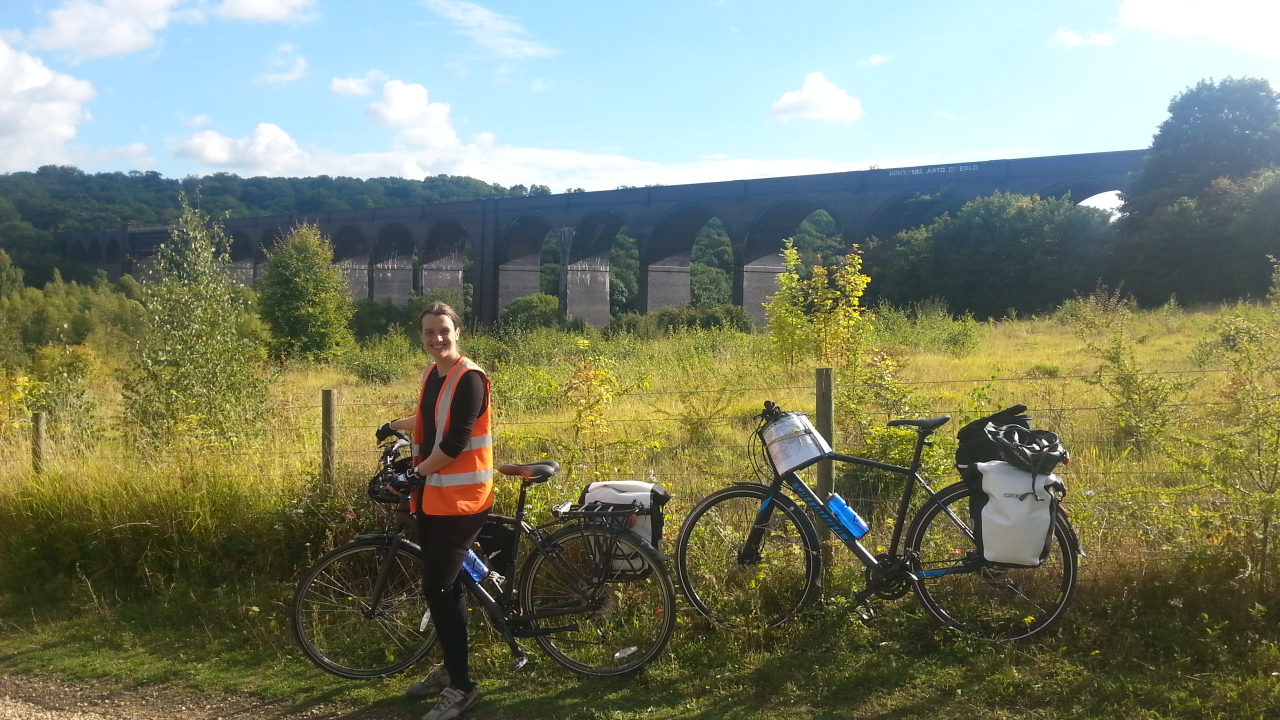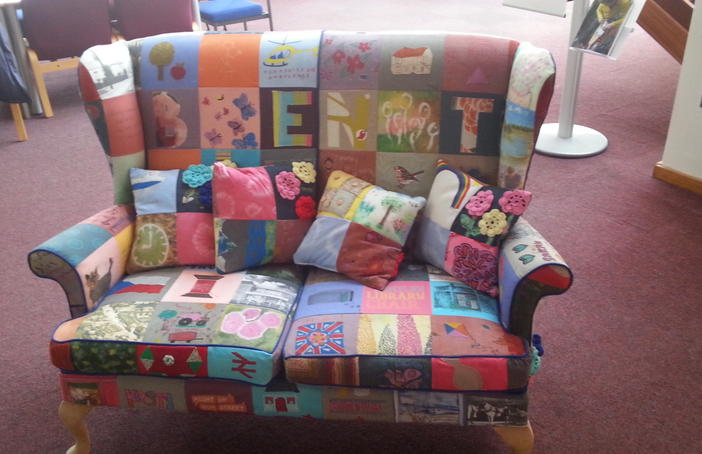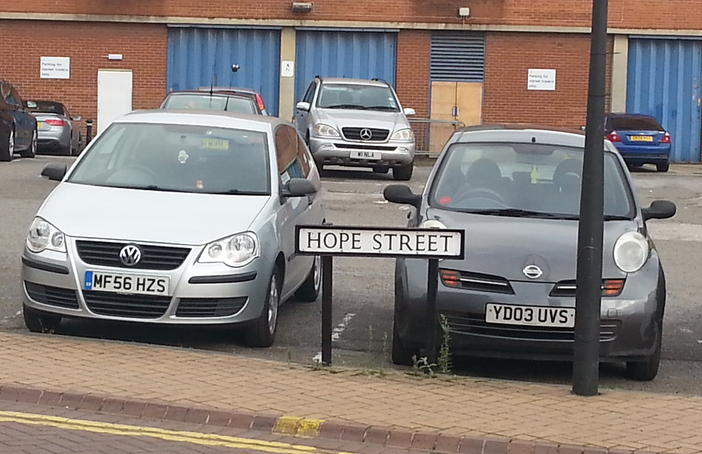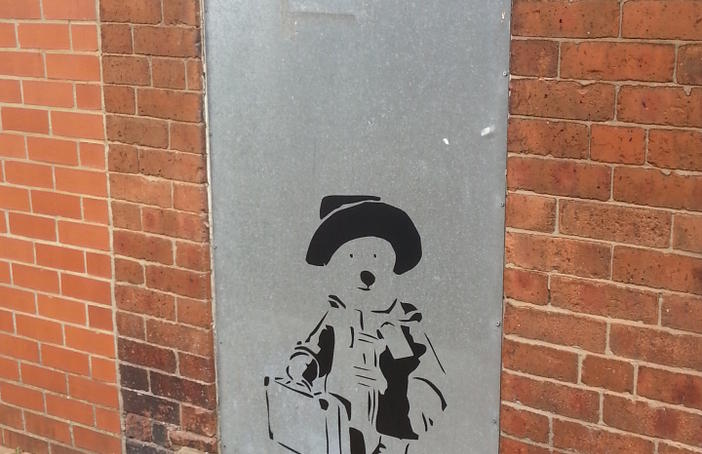MORE THAN A HUNDRED STORIES
More Than 100 Stories is a commission led by artists Sarah Butler and Nicole Mollet that explores and creatively maps the Creative People and Places programme.
Cycling the ‘Northern Belt’| Wednesday 23rd September: Right Up Our Street, Doncaster
darts, Doncaster Community Arts leads the community based strand of Right Up Our Street and have appointed Arts Supporters to develop artistic activity with local involvement and decision making in five areas of Doncaster. They decided to take me to two different areas, the first, Bentley, where there have been significant problems and delays with the project; the second, Mexborough, where the scheme has 'flown'.

At a CPP-run day earlier in the year discussions kept returning to the idea of failure. CPP is an action research programme, keen to learn from things that have not worked as well as things that have across the programme. And yet talking about the things that don’t work is difficult, emotive, and at times unacceptable. I have heard lots of people talk about failure at the beginning of a project, but I don’t think I’ve ever heard anyone talk about it at the end (not officially, anyway). We always look to rescue something from the process. And that’s the thing: failure and success are not two opposed poles, they can exist together, in degrees.
So, I was really impressed that darts offered to show me an element of their overall programme that had been difficult. In brief, the first year of activity in one of the 5 communities - Bentley - did not achieve what they wanted it to. They decided to end the Arts Supporter’s contract, take stock and rethink. The result was a call out for artist-led commissions to be delivered with the support of a Project Co-ordinator from the Right Up Our Street team.
I met with Dan Jones, a locally based artist with an international profile who pitched for a commission to develop the ‘Shed’ project: a flexible, modular, and most importantly visible space which has established an identity for the work in this area. Visibility is a theme that has come up again and again across CPP projects – the value of creating something that can be seen and recognised and engaged with, something that can bring people together and start those all too important conversations which will lead to friendships, partnerships, new ideas.
Dan’s work, and that of other artists and Project Co-ordinator working in Bentley, started from a difficult place, which is revealed to me as I sit with a group of community members in the community-run library to talk about the project. 'They lead you to the edge and push you off,' one woman tells me. She isn't talking about Right Up Our Street specifically, but about initiatives which she has seen come and go, which have got people interested and then run out of funding. And this is a real risk here – problems, delays and a change of approach means that the work in Bentley is just finding its feet, people are starting to see results, but the funding may well run out in just a few months.
Another woman talks about the call-out for artist-led project – darts’ new approach when they ended the Arts Supporter model there. 'It was what they wanted, not what we wanted,' she says, 'It was about what they wanted to do to us.' Here is the language of ‘us’ and ‘them’ – the proof that however hard you might try to create ownership within a local community it may not always work, or be perceived the way you hope it will be. And there was a real sense of frustration in the room, of having been promised something that hadn't materialised in the way people had anticipated. 'Community' is a complex, slippery concept. It is not one entity with one agenda and one opinion. Personalities matter, as do the chemistry of relationships. There was a sense of antagonism, of frustration, of feeling let down and not listened to, and also a sense of passivity, of demanding power without taking control. I watched Dan listen to one community member and saw how this simple act, of listening, enabled her to move on from her complaints and start to be curious, to ask questions, to engage. What is not on Dan or darts or the community’s side is time, but there is now a will in Bentley to move past ‘failure’ and onto something positive and rooted in this place.

In Mexborough I entered a room filled with engaged, positive people, keen to tell me what they've been doing, completely respectful of each other, and passionate about their place and what the arts can offer to it, and vice versa. Arts Supporter, Dom, told me that people have become friends through the process of developing and delivering arts activities – and friendship is a powerful thing... Renowned local poet Ian Parks talked about a 'renaissance' in Mexborough, a recognition that people were writing and wanting to read and share work, and how he, along with Dom and others, have worked to capture and develop this, through the Ted Hughes poetry festival, local writing groups and events. I am obviously enraptured, because here is a whole programme based on stories, on writing, poetry, narrative, and that's my bag. It is impressive though, how these people have come together and managed to make decisions and make great stuff happen.
Interestingly, I have the 'forgotten cousin' conversation again. Except that this time, the narrative of Mexborough as the 'forgotten town' has resulted in a new local political movement and three independent elected councillors. There is an energy in this town for change, it seems, and people who are willing to step up and make it happen.
We walk around the town, stopping at key places where projects have happened – the cosy cinema in the Concertina Club; the Ted Hughes festival in Ted Hughes' old school (where Ian Parks also went). Some of the words which come up: passion; chemistry; dynamic; brokers; connections; revival; quirky; equals; encounters; friendship; commitment; curiosity; transformation; fun. It feels fitting that the street transformed into a cinema – with its stencil trace of Paddington Bear from its last incarnation – is called Hope Street.


I end my day meeting with four young people involved in the community ensemble for the recent production of Dancehall at Doncaster's Cast Theatre. They enthuse about the experience, about the chance to learn new skills and be treated as equals by the professional dancers, about the self confidence, friendships and contacts they've gained through the process. Rebecca tells me how she almost chickened out of the auditions, then almost chickened out of the first rehearsal, but stayed with it. 'It's made me question my future,' she tells me, 'It's made me think I need to be involved in the theatre in some way.' As we walk through the back stage area from our dressing room meeting space back into the soft evening light she wells up a little - 'It brings it all back,' she tells me. 'The whole experience made me so happy, so fulfilled.'
 Sarah Butler
Sarah Butler Nicole Mollett
Nicole MollettFilter by
DATE
- July 2016 (3)
- June 2016 (4)
- May 2016 (3)
- April 2016 (1)
- March 2016 (2)
- February 2016 (2)
- January 2016 (2)
- December 2015 (1)
- November 2015 (2)
- October 2015 (3)
- September 2015 (11)
- August 2015 (4)
- July 2015 (10)
TAGS
- - No value - (14)
- bait (1)
- Batley Festival (1)
- Bentley (1)
- change (1)
- collaboration (2)
- community (2)
- Confidence (4)
- Creative Scene (1)
- cycling (3)
- decision making (1)
- decisionmaking (1)
- Doncaster (1)
- drawing (2)
- East Durham Creates (1)
- engagement (1)
- flying (1)
- Funding (1)
- Glossary (1)
- Granby 4 Streets (1)
- Heart of Glass (3)
- Hull (1)
- In My Place (1)
- landscape (1)
- language (4)
- LeftCoast (2)
- Local (3)
- Manifesto (1)
- Mexborough (1)
- Passion (1)
- People (2)
- postcards (1)
- Process (1)
- quality (1)
- research (1)
- Right Up Your Street (1)
- Ronnie Hughes (1)
- Roots and Wings (1)
- Socially Engaged Art (1)
- Spectacle (1)
- Super Slow Way (2)
- targets (1)
- The Cultural Spring (1)
- Themes (1)
- time (4)
- trust (1)
- visibility (1)







